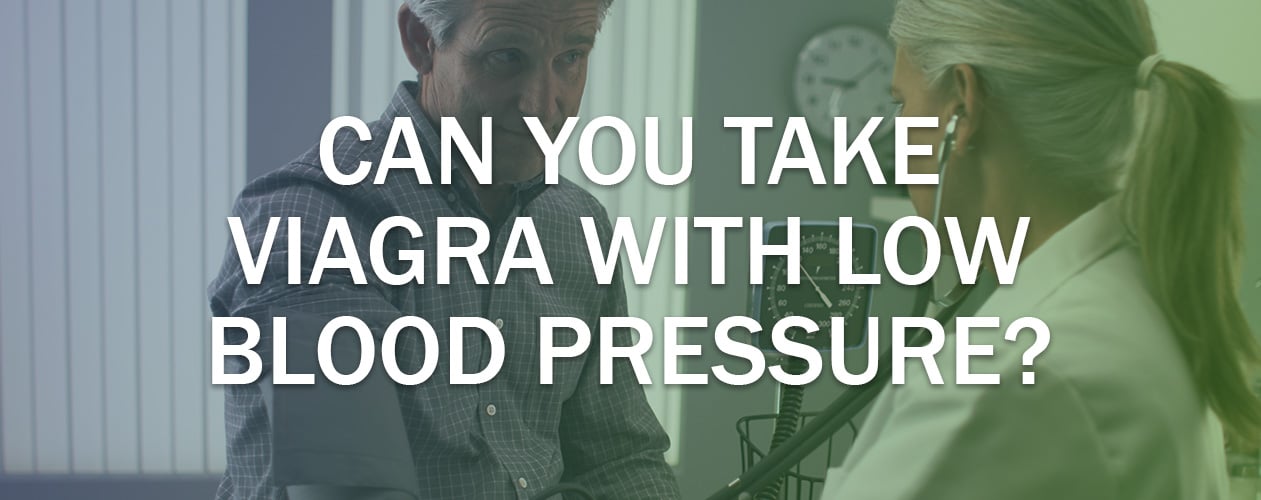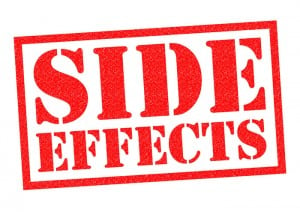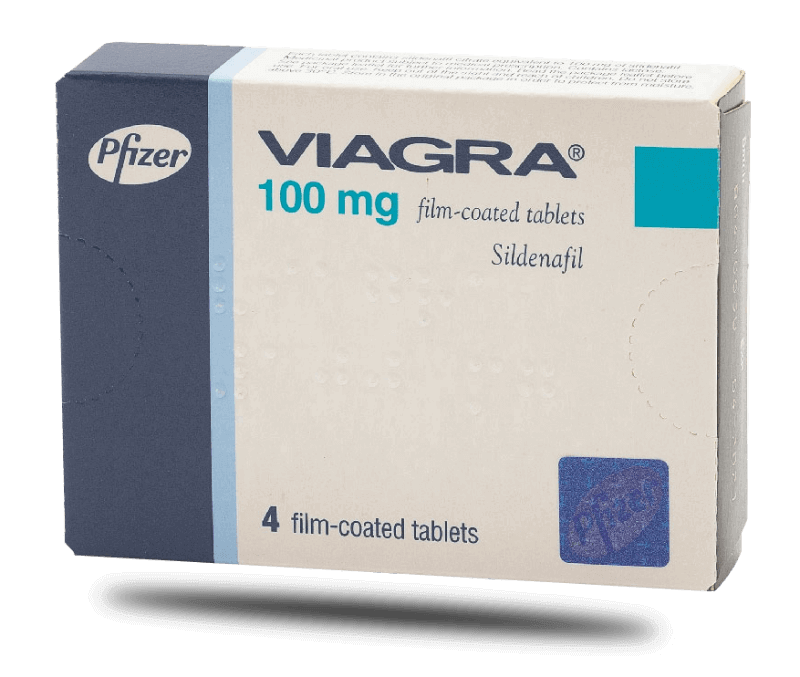Can You Take Viagra With Low Blood Pressure?

Low blood pressure, also called hypotension is a blood pressure low enough that the flow of blood to the organs of the body is inadequate and symptoms and/or signs of low blood flow develop shock. Low blood pressure that causes an inadequate flow of blood to the body’s organs can cause strokes, heart attacks, and kidney failure. Optimal blood pressure is less than 120/80 (systolic/diastolic). The systolic blood pressure represents the pressure in the arteries when the heart beats and fills them with blood. The diastolic blood pressure is the pressure in the arteries when the heart rests between beats.
What are the symptoms of low blood pressure?
The most common symptoms of low blood pressure include:
- Light-headedness;
- Dizziness;
- Fainting (syncope).
Other symptoms of low blood pressure related to the conditions or diseased are:
- Orthostatic hypotension (postural hypotension): a form of low blood pressure that happens when you stand up from sitting or lying down.
- Heart disease: chest pain (a symptom of angina) or even a heart attack due to is insufficient blood pressure to deliver blood to the coronary arteries (the arteries that supply blood to the heart’s muscle).
- Kidney disease: occurs when insufficient blood is delivered to the kidneys, the kidneys fail to eliminate wastes from the body, for example, urea and creatinine, and the level of these wastes increase in the blood.
- Shock: is a life-threatening condition where persistently low blood pressure causes organs such as kidney, liver, heart, lung, and brain to fail rapidly.
Click HERE to View Viagra Prices > >
What are the causes of low blood pressure?
The factors that lead to the occurrence of low blood pressure reduce the cardiac output which is the amount of blood pumped by the heart.
Causes of low blood pressure include:
- Dehydration
Dehydration frequently occurs in patients suffering from prolonged nausea, vomiting, diarrhoea sweating, fever and heat exhaustion. Also, people may become dehydrated after excessive exercise which shunts blood away from the organs to the muscles.
Dehydration can be mild, moderate and severe. Mild dehydration is characterized by thirst and dry mouth. Patients with moderate to severe dehydration may experience orthostatic hypotension, while prolonged and severe dehydration can lead to shock, kidney failure, confusion, acidosis, coma, and even death.
- Bleeding
Low blood pressure may occur after moderate and severe bleeding. Bleeding can result from trauma, surgical complications, or from gastrointestinal abnormalities such as ulcers, tumours, or diverticulosis. An example of severe and rapid bleeding is the bleeding from a ruptured aortic aneurysm which causes shock and death.
- Inflammation
Low blood pressure is caused by severe inflammation of the organs such as acute pancreatitis.
- Heart diseases
Pericarditis: is an inflammation of the pericardium, the sac surrounding the heart. It causes fluid to accumulate within the pericardium and compresses the heart, restricting its ability to expand, fill and pump blood.
Weakened heart muscle is caused by:
- the death of a large portion of the heart’s muscle due to a single, large heart attack or repeated smaller heart attacks;
viral infections of the muscles of the heart (myocarditis);
aortic stenosis. - Pulmonary embolism: is a life-threatening emergency characterized by a large blood clot which can block the flow of the blood into the left ventricles from the lungs. Therefore, it reduces the blood returning to the heart for pumping.
- Bradycardia (slow heart rate): decreases the amount of blood pumped by the heart. In healthy adults, the normal values of heart rate at resting are between 60 and 100 beats/minute. Bradycardia represents a resting heart rate lower than 60 beats/minute. Bradycardia does not always cause low blood pressure, for example at athletes who can have resting heart rates between 40 and 50 beats per minute without any symptoms. This process explained by the forceful contractions of the heart that pump more blood than in non-athletes. Bradycardia may be caused by:
- Sick sinus syndrome;
- Heart block;
- Drug toxicity.
- Tachycardia (abnormally fast heart rate): the most common example of tachycardia which causes low blood pressure is atrial fibrillation, a disorder of the heart characterized by rapid and irregular electrical discharges from the muscle of the heart causing the ventricles to contract irregularly and rapidly. Due to their rapid contractions, the ventricles do not have enough time to fill with blood before each contraction; therefore, the amount of blood that is pumped decreases.

- Drugs
Medicines that can slow the heart rate:
- calcium channel blockers;
- beta blockers;
- digoxin.
- Elderly people are extremely sensitive to this kind of drugs.
- Medicines used in the treatment of high blood pressure:
- angiotensin-converting enzyme inhibitors: captopril, enalapril, fosinopril, lisinopril, perindopril, ramipril;
- angiotensin receptor blockers: candesartan, valsartan, losartan, olmesartan, telmisartan, irbesartan;
- calcium channel blockers: amlodipine, felodipine, nifedipine, nicardipine, diltiazem, verapamil;
- alpha-blockers: doxazosin, prazosin, terazosin;
- diuretics (hydrochlorothiazide, indapamide, furosemide) decrease blood volume by causing excessive urination.
- Medicines used in the treatment of depression: amitriptyline.
- Medicines used in the treatment of Parkinson’s disease: levodopa.
- Medicines used in the treatment of erectile dysfunction: sildenafil (Viagra), tadalafil (Cialis), vardenafil (Levitra).
Other causes:
- Pregnancy;
- Hormonal problems: hypothyroidism, diabetes;
- Liver diseases;
- Low body temperature;
- High body temperature;
- Sepsis (severe blood infection);
- Anaphylaxis (severe allergic reaction);
- Septicaemia (severe infection in which a bacterium enters the blood;
- Adrenal insufficiency: Addison’s disease;
- Nutritional deficiency: lack of essential vitamins B-12 and folic acid.
What is Viagra?
Viagra is the brand name of sildenafil, a drug used for the treatment of erectile dysfunction. Erectile dysfunction or impotence is the inability to attain or maintain an erection of the penis adequate for the sexual satisfaction of both partners.
Viagra belongs to a class of drugs called phosphodiesterase type 5 inhibitors.
Nowadays, the selective phosphodiesterase type 5 inhibitors (PDE5Is) represent the main class of drugs used in the treatment of erectile dysfunction. They are recommended as the first line therapy for erectile dysfunction. These medications are highly efficacious, are well tolerated, and have very favourable safety profiles. Four phosphodiesterase type 5 inhibitors are available on market: sildenafil (Viagra®, Pfizer), vardenafil (Levitra®, Bayer), tadalafil (Cialis®, Lilly-ICOS) and avanafil (Stendra®).
Phosphodiesterase type 5 inhibitors not directly cause penile erections but affect instead of the response to sexual stimulation.
Viagra is formulated as blue, film-coated rounded-diamond-shaped tablets equivalent to 25 mg, 50 mg and 100 mg of sildenafil for oral administration. They are marked ‘Pfizer’ on one side and ‘V50’ on the other side. The tablets are provided in blister packs containing 2, 4 or 8 tablets within a carton.
How was Viagra discovered?
The discovery of the effects of Viagra (sildenafil) on penile erection was an unplanned event. The compound UK92480 was initially developed by Pfizer as a new treatment for angina pectoris, a heart condition that constricts the vessels that supply the heart with blood and for arterial hypertension (high blood pressure). During clinical trials, the researchers observed that the drug was more effective in inducing penile erection than treating angina. Therefore, Pfizer decided to market it for erectile dysfunction, rather than for angina. The drug was patented in 1996, approved for use in erectile dysfunction by the FDA on 27 March 1998, becoming the first oral treatment approved to treat erectile dysfunction in the United States.
How does Viagra work?
Like the other phosphodiesterase type 5 inhibitors, Viagra works only when you are sexually stimulated.
Viagra is an oral therapy for erectile dysfunction. In the natural setting, i.e. with sexual stimulation, it restores impaired erectile function by increasing blood flow to the penis. The physiological mechanism responsible for the erection of the penis involves the release of nitric oxide (NO) in the corpus cavernosum during sexual stimulation. Nitric oxide then activates the enzyme called guanylate cyclase, which results in increased levels of cyclic guanosine monophosphate (cGMP), producing smooth muscle relaxation in the corpus cavernosum and allowing inflow of blood. Viagra is a potent and selective inhibitor of cGMP specific phosphodiesterase type 5 in the corpus cavernosum, where phosphodiesterase type 5 is responsible for degradation of cGMP. Viagra has a peripheral site of action on erections. Viagra has no direct relaxant effect on isolated human corpus cavernosum but potently enhances the relaxant effect of NO on this tissue. When the NO/cGMP pathway is activated, as occurs with sexual stimulation, inhibition of PDE5 by sildenafil results in increased corpus cavernosum levels of cGMP. Therefore, sexual stimulation is required for sildenafil to produce its intended beneficial pharmacological effects.

What are the side effects of Viagra?
The side effects of Viagra are mild to moderate and of a short duration.
A very common side effect (that may affect more than 1 in 10 people, according to the patient information leaflet) is a headache.
Other common side effects are:
- nausea,
- indigestion,
- stuffy nose,
- dizziness,
- facial flushing,
- hot flush (symptoms include a sudden feeling of heat in your upper body),
- colour tinge to vision,
- blurred vision,
- visual disturbance.
Uncommon side effects (that may affect up to 1 in 100 people) were registered in different phases of clinical trials and are listed below:
- vomiting,
- upper abdominal pain,
- gastro-oesophageal reflux disease,
- skin rash,
- pain in the arms or legs,
- nosebleed,
- feeling hot,
- feeling tired,
- eye irritation,
- light sensitivity,
- watery eyes,
- pounding heartbeat,
- rapid heartbeat,
- high blood pressure,
- low blood pressure,
- muscle pain,
- feeling sleepy,
- reduced sense of touch,
- vertigo,
- ringing in the ears,
- dry mouth,
- blocked or stuffy sinuses,
- inflammation of the lining of the nose,
- presence of blood in urine.
Rare side effects (that may affect up to 1 in 1,000 people):
- fainting,
- dry nose,
- swelling of the inside of the nose,
- feeling irritable and sudden decrease or loss of hearing,
- stroke,
- heart attack,
- irregular heartbeat,
- temporary decreased blood flow to parts of the brain,
- a feeling of tightening of the throat,
- bleeding at the back of the eye,
- double vision,
- the reduced sharpness of vision,
- abnormal sensation in the eye,
- seeing halos around lights,
- dilation of the pupil of the eye,
- discolouration of the white of the eye
- penile bleeding, the presence of blood in semen
- unstable angina and sudden death: most of the men who experienced these side effects have heart problems before taking Viagra; therefore, it is not possible to determine whether these events were directly related to this medicine.
Stop taking Viagra immediately and call your healthcare professional if you experience any of the following serious adverse effects:
- Chest pains: this occurs uncommonly. If this occurs before, during or after intercourse get in a semi-sitting position and try to relax. Do NOT use nitrates to treat your chest pain.
- A persistent and sometimes painful erection lasting longer than 4 hours (occurs rarely);
- A sudden decrease or loss of vision (occurs rarely);
- An allergic reaction (occurs uncommonly): symptoms include sudden wheeziness, difficulty breathing or dizziness, swelling of the eyelids, face, lips or throat.
- Serious skin reactions such as Stevens-Johnson Syndrome (SJS) and Toxic Epidermal Syndrome (TEN) (occurs rarely): symptoms may include severe peeling and swelling of the skin, blistering of the mouth, genitals and around the eyes, fever.
- Seizures or fits (occurs rarely).
Viagra drug interactions
Before starting the treatment with Viagra, it is very important to tell your pharmacist or doctor if you are taking or have recently taken any other medicines. These medicines include:
- Nitrates (glyceryl trinitrate, isosorbide mononitrate, isosorbide dinitrate) and nitric acid donors (amyl nitrite nicorandil or sodium nitroprusside): these drugs are used in the treatment of angina pectoris or heart failure. The co-administration of Viagra with nitrates is
- contraindicated because Viagra was shown to potentiate the hypotensive effects of nitrates, leading to a dangerous fall in blood pressure.
- Guanylate cyclase stimulators (riociguat): the co-administration may potentially lead to symptomatic hypotension.
- Ritonavir, a drug used in the treatment of HIV infection: it is contraindicated to take Viagra when you are taking ritonavir because ritonavir has inhibitory effects in the enzyme CYP3A4 which is responsible for Viagra metabolism. Pharmacokinetic analysis of clinical trial data
- indicated a reduction in Viagra clearance when co-administered with CYP3A4 inhibitors.
- Alpha-blockers (alfuzosin, doxazosin, tamsulosin), drugs used to treat urinary problems due to an enlarged prostate or occasionally high blood pressure.
- Medicines for fungal infections (ketoconazole, itraconazole).
- Erythromycin.
- Any other treatment for erectile dysfunction.
Can you take Viagra with low blood pressure?
As it was mentioned above, Viagra acts by releasing nitric oxide which has vasodilator effects and caused hypotension. For this reason, it is contraindicated to take Viagra when you are under treatment with other drugs with vasodilator properties.
Viagra can cause a decrease in blood pressure, particularly one to two hours after taking it. If you already have low blood pressure, discuss with your doctor about this problem.
The effects of sildenafil on blood pressure were studied in normotensive and hypertensive men. The objective of the clinical trial was to determine the occurrence of clinically significant decreases in blood pressure with sildenafil use in normotensive and hypertensive men by means of ambulatory blood pressure monitoring. A number of 49 men (22 hypertensive and 27 normotensives) were enrolled in the trial. On 2 nights, the patients had their ambulatory systolic blood pressure, diastolic blood pressure and heart rate monitored during the first 3 hours (waking period) and every 30 minutes after midnight for 3 additional hours (sleeping period). The first night, no medication was taken, while on the second night, the patients administered sildenafil 100 mg.
According to the results, sildenafil caused small, clinically insignificant reductions in ambulatory blood pressure in active and resting normotensive and hypertensive men.
Warnings and precautions
Before taking Viagra, tell your doctor or your pharmacist if you have any of the following medical conditions:
- Anaemia (abnormality of red blood cells);
- Leukaemia (cancer of blood cells);
- Multiple myelomas;
- Deformity of your penis;
- Heart problems;
- Stomach ulcer;
- Bleeding problems.
Click HERE to View Viagra Prices > >
References:
- https://www.medicinenet.com/low_blood_pressure/article.htm#other_caues_of_low_blood_pressure
- https://www.webmd.com/heart/understanding-low-blood-pressure-basics#2
- http://www.heart.org/HEARTORG/Conditions/HighBloodPressure/GettheFactsAboutHighBloodPressure/Low-Blood-Pressure—When-Blood-Pressure-Is-Too-Low_UCM_301785_Article.jsp#.W0R6OdUzaUk
- https://emedicine.medscape.com/article/444220-clinical?src=refgatesrc1#showall
- Al-Shaiji TF, Brock GB. Phosphodiesterase type 5 inhibitors for the management of erectile dysfunction: preference and adherence to treatment. Curr Pharm Des. 2009;15(30):3486-95.
- Corbin J. Mechanisms of action of PDE5 inhibition in erectile dysfunction. International Journal of Impotence Research. 2004;16(S1): S4-S7. Mechanism
- https://www.medicines.org.uk/emc/product/1072/smpc
- https://www.drugs.com/slideshow/viagra-little-blue-pill-1043#
- https://www.medicines.org.uk/emc/files/pil.1072.pdf
- Vardi Y, Klein L, Nassar S, Sprecher E, Gruenwald I. Effects of sildenafil citrate (Viagra) on blood pressure in normotensive and hypertensive men. Urology. 2002 May;59(5):747-52. PubMed PMID: 11992853.


